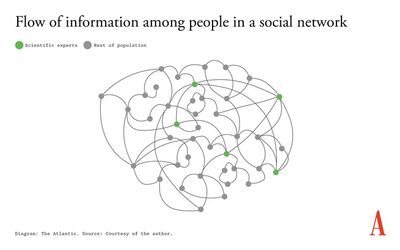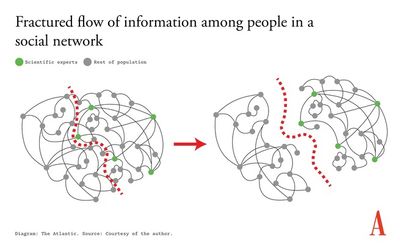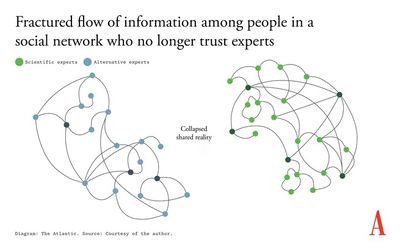What a week, huh? We're going to see a lot of "expert" and "hot" takes on the 2024 US elections for quite some time, and the effects of this election will ripple for many years to come. But as Jon Stewart reminds us:
This is not the end. And we have to regroup and we have to continue to fight and to continue to work day in and day out to create the better society - for our children, for this world, for this country - that we know is possible. It's possible.
Let's jump in.
1/ Deb Roy on the flow of information, truth decay, and some suggestions on how to rebuild our connections to each other, facts, and a shared reality.
Roy writes:
Our belief in things we cannot ourselves verify relies on trust networks. If the connections to the experts are broken, our understanding of reality becomes untethered. Society then begins a slide into doubt and denialism, and “truth decay,” as a RAND initiative has called it, starts to occur. If we want to reverse that process, we need to rebuild the networks of trust.



2/ Vitalik Buterin writes about prediction markets and the emergent category of info finance.
You should never trust the charts entirely: if everyone trusts the charts, then anyone with money can manipulate the charts and no one will dare to bet against them. On the other hand, trusting the news entirely is also a bad idea. News has an incentive to be sensational, and play up the consequences of anything for clicks. Sometimes, this is justified, sometimes it's not. If you see a sensational article, but then you go to the market and you see that probabilities on relevant events have not changed at all, it makes sense to be suspicious. Alternatively, if you see an unexpectedly high or low probability on the market, or an unexpectedly sudden change, that's a signal to read through the news and see what might have caused it. Conclusion: you can be more informed by reading the news and the charts, than by reading either one alone.
3/ Google DeepMind and Hugging Face released SynthID Text, a tool for marking and detecting text generated by LLMS.
4/ David Sasaki on culture, identity, and authenticity.
I intend to re-read the Time Capsule in 20 years. But for this one, I’ve set a reminder to revisit next September to prepare for the next Día de Muertos. I’ll offer to help paint next year’s neighborhood mural. I’ll volunteer for the tequio to clean up the local cemetery, and hopefully find a group of neighbors to design costumes and perform a skit.I hope that 20 years from now I’m still doing the same, though I recognize the odds are slim. The forces of globalization, commodification, individualism, and technology aren’t slowing down and will likely accelerate. Plus, I’ve never lived anywhere for more than five years—will I still be in the same neighborhood in 2044? It seems unlikely.Either way, culture doesn’t have to be something I merely document and upload to express my identity. It can help weave me into a shared social fabric. At least that’s my goal.
5/ Mandy Brown on grief, doubt, and nostalgia, based on her reading note on James Hollis' The Middle Passage.
If you're intrigued, Maria Popova's notes on the book is worth a read and will send you scurrying from one path of inquiry to another.